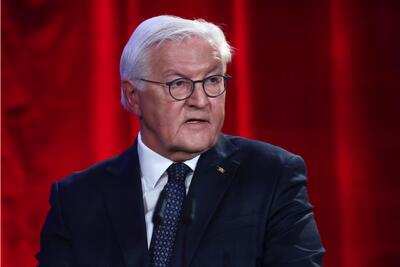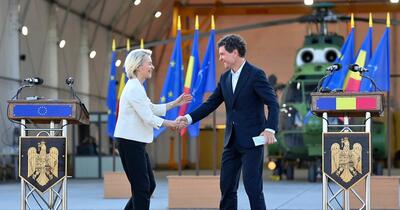
Așa CEVA nu poate fi ADEVĂRAT!
In Statul Islamic se sta la coada pentru a sari in aer. Unii se plang ca misiunile sinucigase se dau pe pile. Povestea tanarului care a incercat sa devina bomba umana in Irak si Siria dar s-a dat batut dupa trei luni.
In Statul Islamic toti militantii sunt egali, dar, potrivit unui cleric din Daghestan, unii sunt mai egali decat altii, se scrie pe pagina electronica a Radio Europa Libera.
Kamil Abu Sultan ad-Daghestani s-a plans ca militantii sauditi din Irak isi pun prietenii si rudele in fata pentru misiuni sinucigase in Irak, lasand cecenii fara oportunitati de a se arunca in aer, scrie sursa citata.
Din aceasta cauza, militantii sunt nevoiti si stea luni de zile pe lista de asteptare a sinucigasilor cu bomba din Siria pentru a face rost de o misiune.
Plangerea lui Abu Sultan, intitulata "Coruptie in Dawlah" (Dawlah este o prescurtare pentru Statul Islamic), a fost pusa pe un site nou denumit Qonah. Acest site, scrie Europa Libera, pare sa fie legat de o grupare din Caucazul de Nord apropiata de Akhmed Chatayev (cunoscut si ca Akhmad al-Shishani), un militant cecen veteran ce conduce batalionul Yarmouk al Statului Islamic.
Abu Sultan explica faptul ca a aflat de problema cu atacatorii sinucigasi de la Chatayev.
Potrivit lui Abu Sultan, lista de asteptare pentru atacatorii sinucigasi in Siria este atat de lunga incat, in mod ironic, unii militanti mor pe campul de lupta inainte de a avea sansa sa sara in aer pentru Statul Islamic.
Din cauza ca stau prea mult la coada in Siria, unii militanti s-au dus in Irak, unde lista de asteptare e mult mai scurta.
"Akhmed al-Shishani mi-a povestit despre un tanar ce a plecat in Irak pentru o misiune sinucigasa, iar acesta s-a dus acolo pentru ca in Sham (Siria) este o coada foaaaaarte lunga (de cateva mii de persoane)”, a scris Abu Sultan.
Dar cand tanarul doritor sa devina atacator sinucigas s-a dus in Irak a aflat ca tot nu va putea sa sara in aer.
Dupa trei luni in care nu a reusit sa devina bomba umana, tanarul militant s-a dat batut si s-a intors in Siria, potrivit lui Abu Sultan.
Acesta s-a plans ca nu se poate face rost de o misiune sinucigasa in Irak decat prin “blat”. Exista nepotism printre militantii sauditi, care isi favorizeaza rudele ridicandu-i pe primele pozitii de pe lista de asteptare pentru atacatori sinucigasi, a spus militantul.
Abu Sultan scrie ca militantul s-a dus sa vorbeasca cu Chatayev pentru a se plange de sauditi. “Acesti sauditi sunt legati strans unul de altul, nu lasa pe nimeni sa patrunda, fac “blaturi” pentru ca rudele lor sa ajunga in fata cozii”, i-a spus lui Chatayev militantul frustrat.
“Ei bine, ceea ce vreau sa spun este ca lucrurile nu pot fi lasate asa, trebuie sa ne plangem califului”, a spus Abu Sultan, facand referire la liderul Statului Islamic, Abu Bakr al-Baghdadi.
Articolul original
Daghestani Militant Blows Up Over IS Suicide-Bomber Nepotism
Suicide truck and car bombings are a prestigious line of work for Islamic State militants as it enables the militant group to carry out large-scale detonations -- using a ton or more of explosives -- with pinpoint accuracy.
May 21, 2015
In the Islamic State (IS) group, all militants are equal. But some are more equal than others, according to a Daghestani pro-IS preacher.
Kamil Abu Sultan ad-Daghestani has complained that Saudi militants in Iraq are putting their friends and relatives forward for cushy suicide-bombing missions in Iraq, leaving Chechens without opportunities to blow themselves up.
As a result, militants are forced to spend months on the suicide-bomber waiting list in Syria in order to land a "job."
Abu Sultan's complaint, titled Corruption In Dawlah (which is shorthand for IS), was shared on a new website named Qonah. The site is registered to a German Internet provider and appears to be linked to a group of North Caucasus people connected with Akhmed Chatayev (Akhmad al-Shishani), a veteran Chechen militant in charge of IS's Yarmouk Battalion.
Abu Sultan explains in his complaint that he found out about the suicide-bomber problem from Chatayev.
According to Abu Sultan, the waiting list for suicide bombers in Syria is so long that -- ironically -- some militants die on the battlefield before they get their chance to explode for IS.
The Syrian suicide-bomber backlog has pushed some militants to go to Iraq, where there is a much shorter waiting list.
"Amir [Leader] Akhmed al-Shishani told me about a young lad who went to Iraq for a suicide mission, and he went there because in Sham [Syria] there is a veeeeery long queue [of several thousand people]," Abu Sultan wrote.
But when the young suicide-bomber wannabe got to Iraq, he found that he still was unable to blow himself up.
After three months with no suicide bombing, the young militant gave up and came back to Syria, according to Abu Sultan.
Saudi Nepotism
The would-be suicide bomber complained that the only way to get a suicide-bombing assignment in Iraq is through what is known as "blat" -- a Russian slang term meaning connections.
It was Saudi militants in Iraq who were being nepotistic, favoring their family members by pushing them to the top of the suicide bomber waiting list, the militant said.
Abu Sultan writes that the militant went to see Chatayev to complain about the Saudis.
"Those Saudis have got things sewn up, they won't let anyone in, they are letting their relatives go to the front of the line using blat," the frustrated militant told Chatayev.
Abu Sultan said that the way forward to deal with the corruption over suicide bombings was to go straight to the top.
"Well, what I say is, things can't be left as they are, we should complain to the caliph," Abu Sultan opined, in a reference to IS leader Abu Bakr al-Baghdadi.
Abu Sultan did not mention the issue of suicide-bomber corruption, however, in a recent post on the Russian social-networking site VKontakte, where he said that the son of Baghdadi's second-in-command had carried out a suicide bombing and that Baghdadi's own brother had "become a martyr."
"In spite of everything, while we have such leaders, Allah will not allow this state [IS] to be humiliated," Abu Sultan wrote.
Waiting Lists
That would-be IS suicide bombers are placed on a waiting list was revealed in July 2014 by British militant Kabir Ahmed.
Ahmed, who went by the nom de guerre Abu Sammyh Al Brittani, told the BBC's Panorama program that he was on the waiting list to blow himself up.
The 32-year-old father of two, who was in Syria at the time, said he was trying to "get his name pushed up the list" of would-be suicide bombers.
Evidence suggests, however, that Ahmed had to go to Iraq to fulfill his suicide-bombing dream: In November, Ahmed blew himself up in a truck bombing in Baiji. Apparently, Ahmed's road to "martyrdom" was not blocked by nepotistic Saudi militants.
Australian teenage militant Jake Bilardi also went to Iraq to carry out a suicide bombing in Ramadi in March. The 18-year-old only had to wait a few months for his opportunity, however: In January, Bilardi explained that he was on a waiting list with 12 other wannabe bombers.
A recent IS guidebook for potential recruits also advises that those who sign up to be suicide bombers have to be patient.
Before being eligible to blow themselves up, rookie militants go through boot camp.
Afterwards, the guidebook says, "if they want to do a martyrdom operation, they are put in [sic] a waiting list."
Why Are Suicide Bombers So Prized?
Why do IS militants view "martyrdom operations" -- suicide bombings -- as being better than simply dying in battle? After all, both involve a militant giving his life for the sake of IS's military advancement.
The main reason is likely that suicide bombings, particularly truck bombings or vehicle-borne improvised explosive devices (VBIED), offer considerable tactical advantage.
A militant who carries out a suicide truck bombing will have a far greater and more spectacular impact than a foot soldier who is killed on the battlefield.
"In my view, the tactical advantage of suicide VBIEDs [vehicle-borne improvised explosive devices] largely outweighs their symbolic or propaganda value, hence IS's heavy reliance on them," says Syria expert Thomas Pierret of the University of Edinburgh.
Suicide truck bombings enable IS to carry out large-scale detonations using a ton or more of explosives, and with pinpoint accuracy.
"That's a combination you only find with advanced weapon systems that are incomparably more expensive and, anyway, unavailable to nonstate actors so far," Pierret added.
For this reason, IS (and Syrian Al-Qaeda affiliate Jabhat al-Nusra) has used suicide truck bombings to penetrate fortified structures and overwhelm enemy troops.
Most recently, IS used VBIEDs in its assault on the city of Ramadi in Iraq's Anbar Province, targeting military positions in the city with six truck bombs and a bulldozer in a massive assault.
-- Joanna Paraszczuk





